How can targeted antibodies and vaccines be used to treat cancer?
Causing nearly one in six deaths worldwide in 2020, cancer is one of the biggest health challenges of our time. Advancements in technology have led to improved treatments, one of which is using the body’s immune system. Dr Zachary Hartman of Duke University’s School of Medicine in the US is researching how to improve this approach and whether it has the potential to treat a variety of cancers.
Talk like an immunologist
Adaptive immune system — the specific or acquired immune system
Antibody — a Y-shaped protein found in the blood used by the immune system to identify and neutralise foreign objects, such as bacteria
Antibody-drug conjugates — an antibody with a drug attached
Antigen — a foreign substance or surface marker that stimulates an immune response
Autoimmunity — the immune system’s response against an organism’s own cells
Chemotherapy — a form of cancer treatment using chemicals to kill cancer cells
HER2 — a gene coding for the HER2 protein that, in breast cells, helps with normal growth and repair but can function incorrectly and cause the cells to keep growing
Immunology — the branch of medicine and biology concerned with immunity and the immune system
Innate immune system — the non-specific immune system, the first line of defence
In vivo — performed or taking place in living organisms
Macrophages — specialised cells that play a role in the innate immune system
Monoclonal antibody — identical copies of one type of antibody that target a specific cancer antigen
Cancer is a common health issue, with one in two people being diagnosed with some form of cancer every year. One factor that makes the condition so challenging is its ability to evade the immune system, something made easier due to cancer originating from a person’s own cells. This means that cancer cells have ‘self’ antigens, which the immune system recognises to be part of the body, as opposed to ‘foreign’ antigens, which the immune system recognises and attacks to prevent harm. Although the immune system will not attack cancer cells on its own, past research has shown that the immune system can be ‘tricked’ into registering the cells as foreign and attacking them. This is how antibodies came to be used to treat cancer.
Breast cancer is the most common cancer, making up 12.5% of cancer cases worldwide. So, it is no surprise that a wide range of research has been conducted on breast cancer. This research has identified that breast cancer is composed of different subtypes, which are driven by different types of genes and mutations. One subtype of breast cancer, which is very aggressive and rapidly growing, is defined by an amplification of the HER2 gene, classified as HER2 positive (HER2+) breast cancer. This also happens to be one of the only solid tumour cancers treated with tumour-targeting antibodies. At Duke University Medical School, Dr Zachary Hartman is researching how HER2 makes this cancer aggressive, how these HER2-targeting antibodies fight cancer, if these treatments can be improved upon and if there are any other cancer types that this type of treatment could be used for.
How is HER2+ cancer treated currently?
The standard HER2+ cancer treatment starts with chemotherapy and two monoclonal antibody treatments targeting HER2. If the tumour remains contained to the breast tissue, these treatments will be used until the tumour can be removed surgically. The chemotherapy and antibody treatments will be continued after surgery, to ensure there are no cancerous cells left behind. There is a chance that these treatments may not work, the cancer may develop resistance, or the cancer may come back. In these cases, alternative antibody-drug conjugates are used.
What motivates Zachary’s research?
“As tumour-targeting antibodies are barely used for other solid tumours, I want to understand the underlying therapeutic mechanisms for this treatment to see if it could be extended to other cancers and improved upon in breast cancer,” explains Zachary. “And I want to understand why some antibody-drug conjugates work better than others.” Additionally, Zachary aims to explore the potential of a HER2 vaccine, which would stimulate HER2-specific immunity in a similar way to how vaccines are used for viruses (such as COVID-19). This is more difficult, however, as HER2 is also present in healthy cells, and vaccine-generated immunity may not be tumour-specific.
Zachary’s research also aims to fill gaps in our knowledge of tumour immunity. Studies on how HER2 monoclonal antibodies work have been started but are far from complete. These antibodies were originally thought to function by stimulating one type of immune cell (the natural killer cells) or blocking tumour growth signalling, rather than triggering the whole immune system. It has now been found that there are other, more important cells (e.g., macrophages) that can be credited for the response – and researchers are continually learning more about how they stimulate immunity.
What experiments and trials have been done so far?
Zachary’s research has reached the in vivo experiment stage. For this, HER2+ breast cancer cells are injected into mice. Once the cancer has developed, monoclonal antibodies or antibody-drug conjugates are injected to provide insights into how the anti-tumour response is caused. Zachary and his team have also been able to knock out certain genes and proteins and even deplete cell types to study the treatment function and what is needed for the anti-tumour response.
Zachary’s antibody research has not yet reached clinical trials, but he has conducted early-stage HER2 vaccine trials, with under 50 participants, looking at whether HER2-specific antibodies and white blood cell responses are generated from the injection of the recombinant HER2 expressing viruses.
How can the results be used in real life?
So far, Zachary’s research has shown that HER2 vaccines do trigger specific immune responses and can also stop the immune system from tolerating HER2. Whilst this response was not found in all patients, those with the response had better outcomes than those without. Critically, the HER2 vaccines were demonstrated to be very safe and were unable to provoke obvious autoimmunity, thus suggesting their ability to elicit cancer targeting immune responses.
Reference
https://doi.org/10.33424/FUTURUM479
All photos: John S. Wang
Uncovering how these anti-tumour responses work for monoclonal antibodies, antibody-drug conjugates and vaccines will enable current treatments to be improved upon. Zachary’s research also opens the opportunity to use these types of treatments on other cancers. “It is likely this would be on tumours with genes similar to HER2,” he explains.
What are the next steps?
There is plenty of understanding of how the antibodies trigger the innate immune system (including previously mentioned macrophages and natural killer cells), but the effect on the adaptive immune system is yet to be seen. The HER2 vaccine also needs more research, as responses need to be improved since tumour areas are usually immune suppressive. Zachary explains, “To understand if the same principles would hold in cancers in different tissue microenvironments, we need to test some of our findings from HER2 monoclonal antibodies and antibody-drug conjugates against other targets in different cancers.”
 Dr Zachary Hartman
Dr Zachary Hartman
Duke University School of Medicine, Department of Surgery, Duke University, North Carolina, USA
Fields of research: Surgical sciences, immunology, pathology
Research project: Understanding and enabling effective anti-tumour immunity from targeted antibodies and vaccines using innate and adaptive immune checkpoint blockade
Funders: US National Institute of Health (NIH), Department of Defence, Susan G. Komen, American Cancer Society (ACS)
About immunology
Immunology is a specialist area of biomedical science, focusing on research involving the immune system. It focuses on how the body can protect itself from infectious diseases caused by microorganisms. These could be bacteria, viruses, fungi or parasitic organisms, which are all capable of causing intense bodily harm. Immunology can be applied to many different areas, such as vaccines, cancer, allergy and autoimmunity, as well as some that you may not associate with immunology, such as neurodegenerative diseases like Alzheimer’s disease.
Many people have heard of Edward Jenner, the 19th century scientist who discovered that if someone had previously had cowpox, they were protected against smallpox, which was fatal. At the time, he was not aware of microorganisms, which were discovered the following century, or what was going on within the body to cause this protection. However, Jenner’s discovery is thought to be the origin of immunology. His research led to many other scientists using the same principle to create other vaccines against infections, such as cholera and rabies. It was in 1890 when the key component of antibodies was found. This discovery allowed immunology research to become what it is today, and researchers like Zachary are developing new understanding in this vital field all the time.
Explore careers in immunology
Zachary says, “I encourage you to read and reach out for opportunities in science. Before college, there are programmes to become involved with; many laboratories have undergraduate students who are involved in their research programmes. Generally, for admission to PhD and some medical programmes, this type of work and experience is a prerequisite.”
As an immunologist, you could conduct research at a university, for a charity or private/public health sector. This could be in specialist areas including HIV and organ transplantation. You could teach at a university and educate doctors in training or work in clinical immunology to investigate patient immune systems and the causes of any problems.
Duke University has many science-related outreach projects as part of its Center for Pathway Programs.
Duke University’s Center for Applied Therapeutics provides opportunities for talented high school students to work in their laboratories.
In the UK, The British Society for Immunology offers internships.
Pathway from school to immunology
Specific academic requirements for studying immunology at university vary between countries, but biology is a key subject to study.
To pursue clinical immunology (and to work with patients) in the US:
- Earn your bachelor’s degree, preferably in a relevant subject (e.g., biology)
- Complete the Graduate Record Examinations test and attend graduate school or the Medical College Admission test and attend medical school
- Complete the US medical licensing examination
- Participate in a residency programme and an immunology fellowship
- Certify under the American Board of Allergy and Immunology to practise.
Zachary adds, “To follow more of a research-orientated path, you could get your PhD during graduate school and then do post-doctoral fellowships.”
See The American Association of Immunologists for more information.
In the UK:
– Gain high grades in your GCSEs
- Earn three A-levels in chemistry, biology and,
possibly, maths or physics
- Complete medical school
- Complete the foundation programme and apply for speciality training
- You can complete a PhD to become more specialised.
Find out more from the UK’s National Health Service.
Meet Zachary
What was your pathway to becoming an immunologist?
I was always interested in biology and evolution, so I decided to study genetics in graduate school. There, I joined a gene therapy lab and was fascinated by the biology and potential of viruses. I became engrossed in understanding how innate immune responses were triggered by viruses, which led to a broad interest in using viral vectors for vaccines. At the end of my time at graduate school, my father was diagnosed with metastatic prostate cancer, spurring my interest in cancer immunotherapy and the use of different approaches to stimulate antitumour immunity.
What moments have shaped your career?
There have been too many formative experiences to summarise, but eureka moments are the part of the job that keeps you going. Sometimes they are not obvious or are only seen in hindsight. For instance, during graduate school, I was trying to figure out why a specific virus was eliciting immune responses, so I experimented on mice with a specific gene knocked out. Almost all responses went away in the knock-out mice, except in one mouse. I was disheartened, thinking it invalidated the importance of this gene. However, my advisor thought I was crazy and that the results were great. I then went back and re-evaluated the mouse, finding that it had been miscategorised due to a genotyping error. Thus, I found that this gene did dramatically alter immunity and that you really have to pay attention to larger patterns in biology and make sure to confirm everything.
What is challenging and rewarding in your career?
Science is a unique pursuit in its constantly challenging nature. I think to be effective, you must get used to failure being common. You need to find different ways to approach a problem, often again and again and again from different angles, to figure out what is happening. The rewarding parts of my career are the discoveries we’ve made and the papers we’ve published, which are joint ventures with lots of other scientists. Additionally, I think training other scientists and collaborating in a larger community are rewarding experiences. That said, I hope that my proudest moments are yet to come!
What are your aims for the future?
To continue making progress in understanding cancer immunology and contribute to better therapies for patients. A great thing about science is that you can get a feeling of accomplishment and satisfaction by contributing to the knowledge base and creating tools and techniques that will facilitate research for future generations.
Roman’s top tips
1. Be humble.
2. Have confidence in your abilities.
3. Remember that everything around you was built by people just like you.
Do you have a question for Zachary?
Write it in the comments box below and Zachary will get back to you. (Remember, researchers are very busy people, so you may have to wait a few days.)
Learn more about immunology and vaccines:
www.futurumcareers.com/how-can-we-develop-more-effective-vaccines

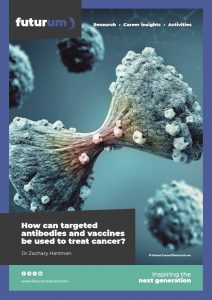
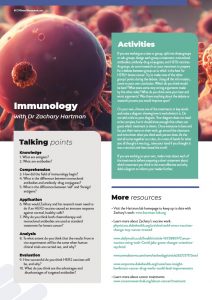



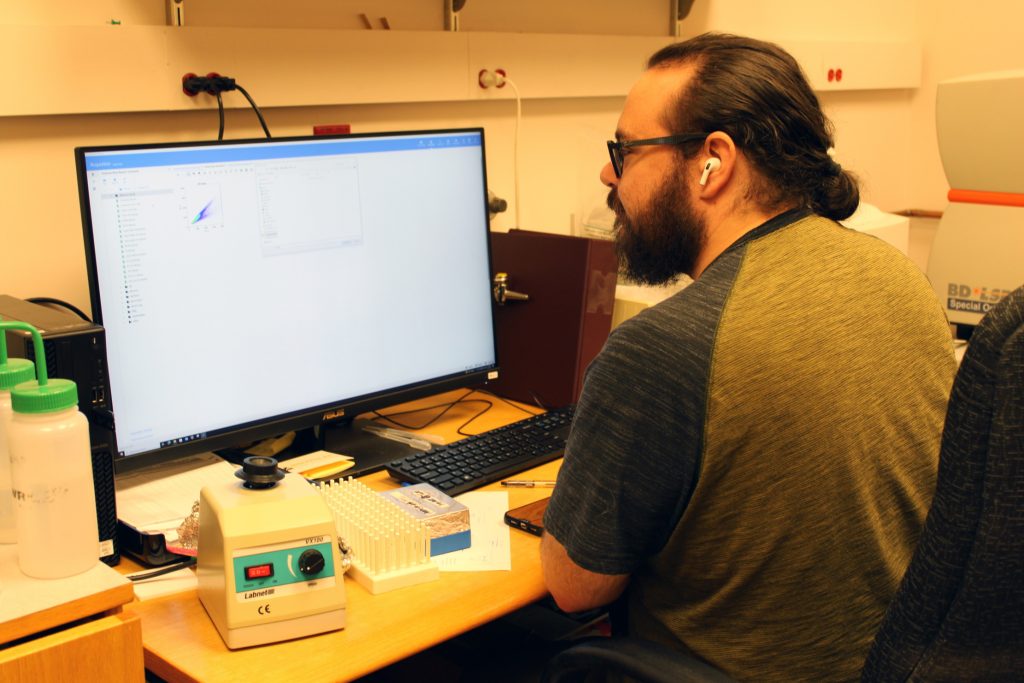





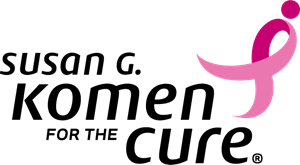

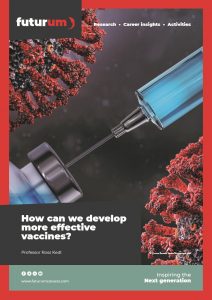
0 Comments